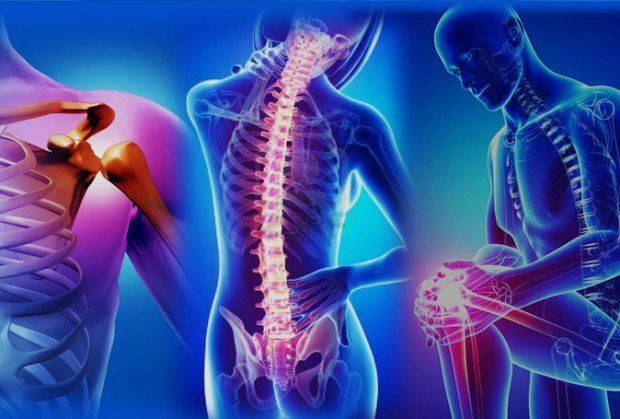If you have pledged that 2016 will be the year you lose weight and get healthy, we have some tips for you! Though it can be a difficult lifestyle change, losing weight does not have to be a stressful and dull time in your life. Here are some tips for those who want to lose weight, get healthy and stay motivated throughout the process.
Understand why you need/want to lose weight.
Many times, the only thing missing from wanting to lose weight is the motivation you need to back it up. If you have no motivation to start eating healthier, you are going to continue to reach for things you shouldn’t, which may cause you to gain weight. For those who are severely overweight or obese, understand that your weight plays a factor in more than just a low physical fitness level. There are conditions that can arise like Metabolic Syndrome and diabetes that you can actually avoid all together. Genetic conditions and diseases should also be something that factors into your motivation. If you are at risk of developing a condition or disease, you should find ways to motivate yourself to stay ahead of it every chance you have.
In an article entitled, Natural Metabolic Weight Loss by Richard Walker, MD, he explains, “Here are some other things which add to the metabolic mess. As we age, we produce less DHEA, which is known to precede the slowing of the thyroid gland. The thyroid gland controls the rate of metabolism meaning that here’s another trigger for even more fat storage. Our sex hormones also begin to decline starting at about the age of 35 for both men and women. Declining estrogens and testosterone contribute to the storage of fat in cells by reducing the type and amount of enzymes required for fat to burn. We begin to notice when we no longer loose the fat as easy as when we were younger.” Make a decision to better yourself today!
Set realistic goals.
Setting a goal such as losing 50 pounds in 30 days is pretty much setting yourself up for failure. There is no rule that says you cannot have both short term and long term goals. It’s very easy to start the New Year off by telling yourself you are going to lose a large amount of weight in a specific time period. But you may want to give yourself more time than you originally thought. Try to set a long term goal like, “I want to lose 20lbs. in 6 months.” Then you can have short term goals in between. Here are some ideas –
Walk for 10 minutes during your lunch break every day.
Eat at least one fruit and/or vegetable with every meal.
Drink at least eight glasses of water every day.
The list goes on and on. The secret to losing weight for those who have a hard time with motivation and keeping up with the lifestyle change is actually only changing your lifestyle in small amounts, increasing overtime. Some people do prefer to jump in at the deep end, however, which is fine if that’s what works for you. “The most important thing to remember is any weight loss is good,” says Louis Aronne, MD, the director of the Comprehensive Weight Control Center at Weill-Cornell Medical College. “Any weight loss will improve your cardiovascular function, reduce your risk for diabetes, and help your blood-pressure.” By the time you’re ready to increase the smaller goals, the primary goals that you achieved may already be habits.
Technology can help!
If you are like most of the world, you have your phone in your hand or somewhere around you about 90% of day. Take advantage of that! There are numerous apps that can help you monitor your weight loss.
My Fitness Pal is a calorie counter right in the palm of your hand. With an extensive database of brand name foods available in the program, just type in the name of the food you are eating for an estimate of its nutritional information. With some basic information like your current weight, height and weight loss goal, My Fitness Pal will suggest an amount of calories you should consume each day. You can also subtract the amount of calories you have burned with your exercise on your daily log in, too. Stop counting calories the old way, and start logging your food easily (and for free!).
Here is an app that is not only keeping you moving but giving back. For every mile of exercise you do, you can help earn money for different charities! Whether you like to run, bike or just walk, Charity Miles will donate 10 cents for every mile you biked and 25 cents for every mile you walked or ran. The more you exercise, the more money you could earn for a charity. Talk about fitness motivation!
For more health, wellness and fitness APP ideas, click here!
Get moving!
This is a part of the weight loss process that is probably the most difficult – exercising. The main excuse you’ve used if you tried to lose weight time and time again is that you just don’t have enough time. But start to make short term exercising goals – walk 10 minutes a day, start taking the stairs, make sure you are not sitting for the majority of your day. “Physical movement makes you feel better and boosts your confidence,” says Charles Platkin, PhD, MPH, Distinguished Lecturer at Hunter College and City University of New York School of Public Health. “Workouts increase the chances of reaching your weight loss goals and decrease the chances of slipping up.” These are small things you can do to keep yourself moving. Always remember: though small, any healthy changes and decisions you make now, are better than what you were doing yesterday.
There are other ways to keep the up with your New Year’s Resolution to lose weight – from finding a friend with the same goals as you for some moral support to reading every nutrition label you can get your hands on. But motivation is key! Keep moving and make small changes. By the time you realize it, you will have completed your goal.
Source: www.prevention.com






